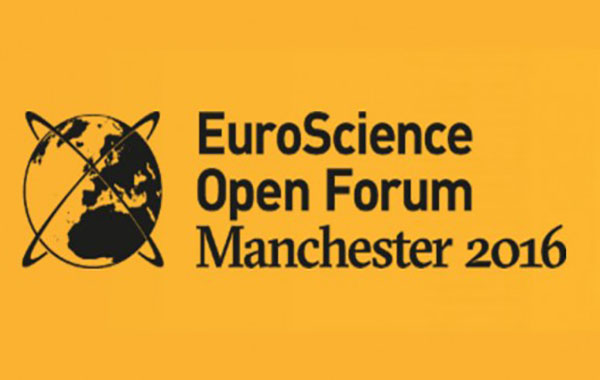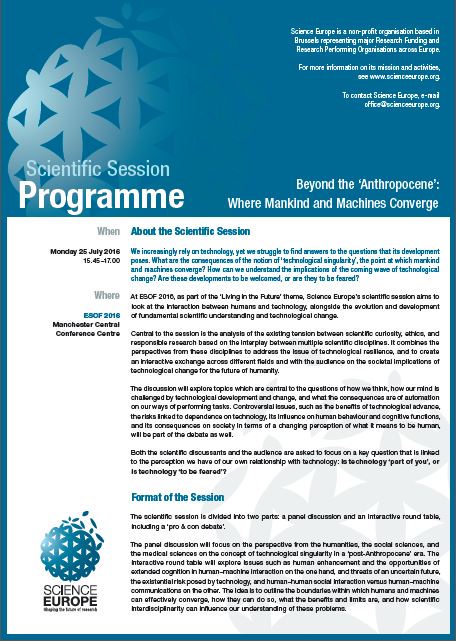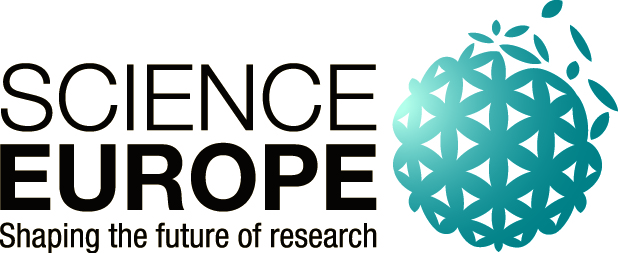ESOF Scientific Session: Science Europe
25 July 2016 | Manchester
The Human Mind Project joins this Scientific Session of the EuroScience Open Forum 2016 hosted by Science Europe, “Beyond the ‘Anthropocene’: where mankind and machines converge.”
As a part of the ‘Living in the Future’ theme, Science Europe’s Scientific Session will look at the interaction between humans and technology.
Is technology ‘part of you’, or is technology ‘to be feared’? Tackling the relationship between technology and humanity, the session will be organised around a panel discussion and an interactive roundtable. Both the scientific discussants and the audience will be invited to reflect upon our perception of the relationship between technology, scientific understanding and the development of technological change.
Registration
Please register your attendance on the ESOF 2016 website here.
Session on: Beyond the ‘Anthropocene’: Where Mankind & Machines Converge
15:45-15:50 Welcome to Science Europe’s Scientific Session, organised by Mariachiara Esposito (Science Europe)
Panel Discussion: Understanding Concepts and Challenges
15:50-15:55 Introduction: From the Anthropocene towards Technological Singularity, Michael Wheeler (Stirling)
15:55-16:05 The Human Factor at the Centre of Radical Innovation, Ola Erstad (Olso)
16:05-16:15 Modelling the Future of Human Well-being, Annette Gruters-Kieslich (Berlin)
16:15-16:25 Responsible Research: Meeting Societal Needs and Ethical Expectations, Patrick Paul Walsh (Dublin)
16:25-16:30 Questions & Answer Session
Roundtable: Exploring the Implications
16:30-16:50 Michael Wheeler (Stirling) & Colin Blakemore (London), moderated by Mattia Gallotti (London)
Concluding Remarks: Technology: A Part of You, or To Be Feared?
16:50-17:00 Mattia Gallotti (London)



